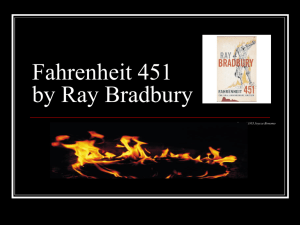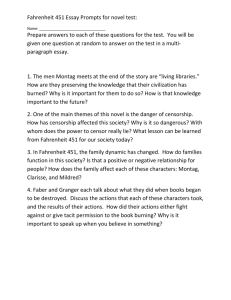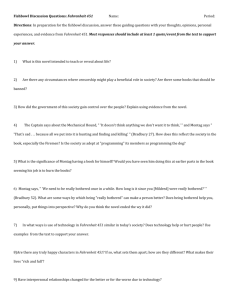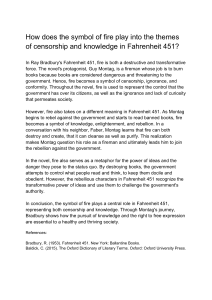In what ways does Fahrenheit 451 explore the importance of memory and books
advertisement
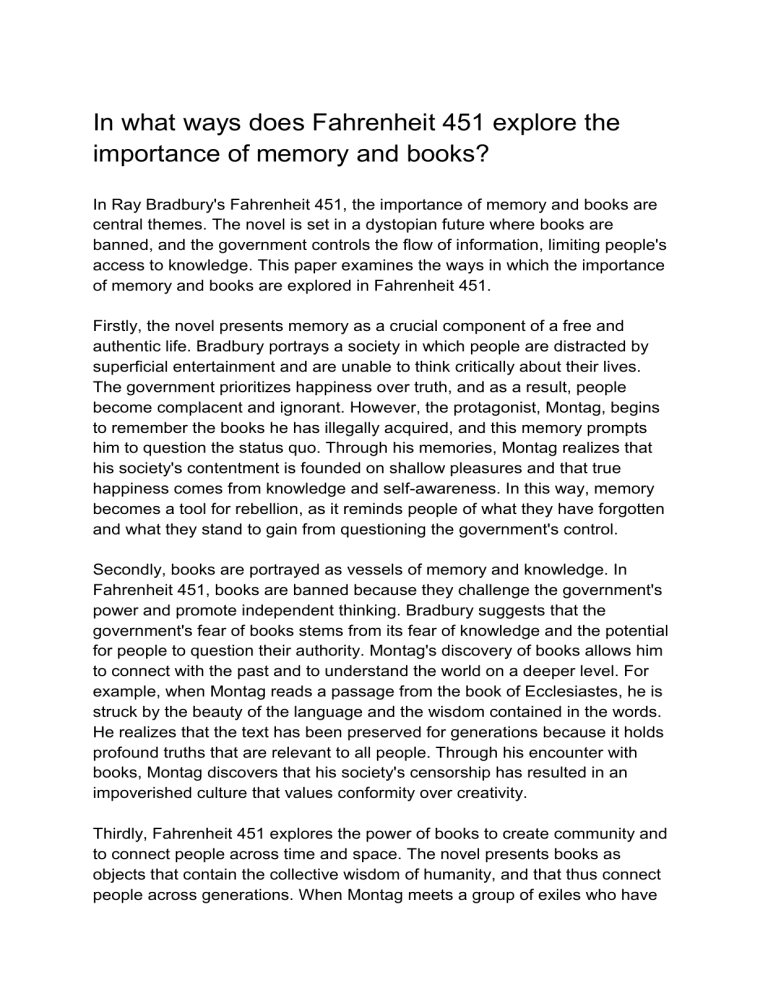
In what ways does Fahrenheit 451 explore the importance of memory and books? In Ray Bradbury's Fahrenheit 451, the importance of memory and books are central themes. The novel is set in a dystopian future where books are banned, and the government controls the flow of information, limiting people's access to knowledge. This paper examines the ways in which the importance of memory and books are explored in Fahrenheit 451. Firstly, the novel presents memory as a crucial component of a free and authentic life. Bradbury portrays a society in which people are distracted by superficial entertainment and are unable to think critically about their lives. The government prioritizes happiness over truth, and as a result, people become complacent and ignorant. However, the protagonist, Montag, begins to remember the books he has illegally acquired, and this memory prompts him to question the status quo. Through his memories, Montag realizes that his society's contentment is founded on shallow pleasures and that true happiness comes from knowledge and self-awareness. In this way, memory becomes a tool for rebellion, as it reminds people of what they have forgotten and what they stand to gain from questioning the government's control. Secondly, books are portrayed as vessels of memory and knowledge. In Fahrenheit 451, books are banned because they challenge the government's power and promote independent thinking. Bradbury suggests that the government's fear of books stems from its fear of knowledge and the potential for people to question their authority. Montag's discovery of books allows him to connect with the past and to understand the world on a deeper level. For example, when Montag reads a passage from the book of Ecclesiastes, he is struck by the beauty of the language and the wisdom contained in the words. He realizes that the text has been preserved for generations because it holds profound truths that are relevant to all people. Through his encounter with books, Montag discovers that his society's censorship has resulted in an impoverished culture that values conformity over creativity. Thirdly, Fahrenheit 451 explores the power of books to create community and to connect people across time and space. The novel presents books as objects that contain the collective wisdom of humanity, and that thus connect people across generations. When Montag meets a group of exiles who have memorized books in order to preserve their contents, he realizes that they are connected by their shared values and their commitment to preserving knowledge. The group, which refers to itself as "the book people," sees books not as mere objects, but as a way of life that connects them with a larger community of thinkers and creators. In conclusion, the importance of memory and books are central themes in Fahrenheit 451. Bradbury explores memory as a tool for rebellion and individualism, while books are foundational vessels of knowledge and wisdom that connect people across time and space. Through the character of Montag, Bradbury presents books as powerful tools for personal and societal transformation and emphasizes the importance of memory in preserving histories and traditions. References: Bradbury, R. (1953). Fahrenheit 451. Ballantine Books. Gaffney, A. (2014). Memory: A Key Theme in Fahrenheit 451. Screen Education, (74), 6670. McGiveron, R. O. (1985). Memory and creation in Ray Bradbury's Fahrenheit 451. The Midwest Quarterly, 26(1), 82-91.
